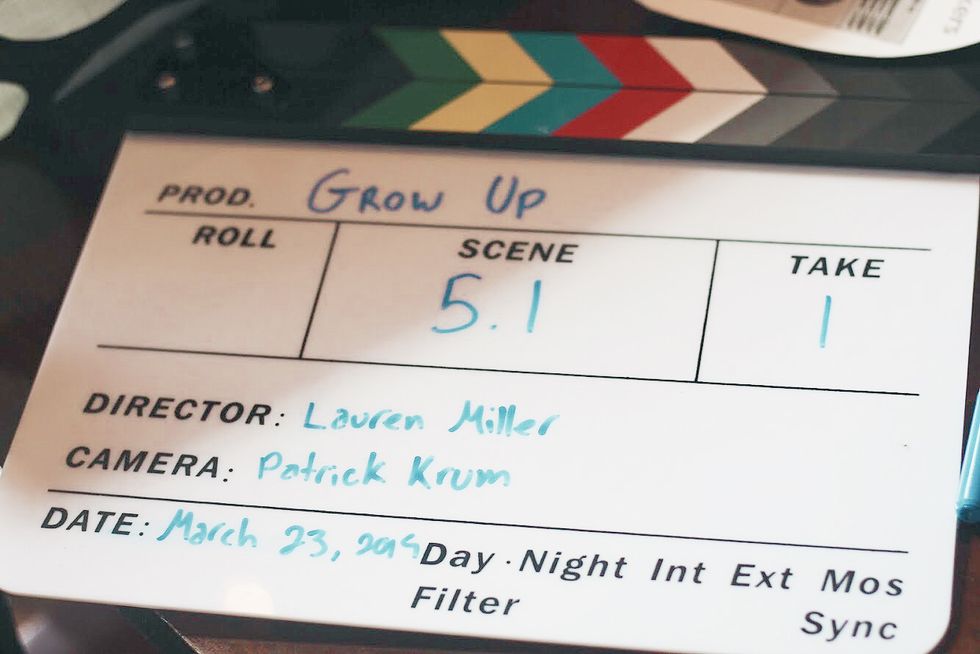The entertainment industry's practices have come into question in recent years, especially in wake of the Harvey Weinstein case, which sparked the Time's Up movement. I attend a college in which the largest programs are in journalism and film, and conversations about this are very relevant in my school community. Some friends of mine were producing a television show for one of the student production companies at Emerson, and I volunteered to be their behind-the-scenes-photographer.
I captured the cast and crew in action on set for two weekends in a row. The show centered around the drama that ensued in a group of friends as they went on to attend different colleges, and was filmed in various locations consisting of my dorm room, my school building, two local Boston restaurants, and an off-campus apartment. It was truly an eye-opening experience.
The cast and crew were primarily female this time around, with two male actors and only about 4 men on the crew, a ratio that is typically highly unlikely in this industry. Hours were spent tweaking the set to make sure it matched the creative vision of the producers exactly. Then came the lighting—lights were brought in, set up in a way that created a specific feel for the scene. The camera was set up on a rig at the right angle that was carefully designed by our director of photography.
It took at least an hour just to set everything up each time, and there were often multiple takes for scenes that may look simple to the viewer, such as a character opening a door and entering a room. The sound needs to be just right, and yes, someone really does shout "quiet on set." I even helped out as the boom operator for a day, and that microphone sure was heavy.
It was really interesting to see all of the different components that go into a single scene. There were often only a few scenes filmed in each 12-hour day, simply because every aspect needed to be perfect for the final cut. It made me realize the true impact the crew, screenwriters, and producers have on projects. I often watch award shows and only recognize the actors who win awards, and have never really given much thought to the people who create the whole framework of a story and setting for the actors to carry out.
This being said, I now understand how certain producers have been able to abuse their power over actors and crew members. They have most of the creative license and logistical power over the film, and the wrong person in this position could easily threaten the people working for them. Plus, it is such a competitive industry that people have kept quiet for a long time until recently.
Thankfully, my producers were great to work with, as they were very respectful of the cast and crew and understood that we all had long days on set along with our other responsibilities as students. They gave plenty of students at our school the chance to participate, especially women. Film is still a male-dominated industry, and the strong women in charge of this project are actively making strides in our school community that I hope to translate into the industry once they graduate. It was a unique and fun experience for me and everyone there, and I'm grateful that I had the opportunity to participate.
From being on set for two weekends and capturing the whole experience as a photographer, I got to know everyone working on the project. Most of them were film majors who had worked on plenty of other sets before. The hours were long, there was so much attention to detail, and I learned so much about the process that I would have never known. I now have a newfound appreciation for all of the roles in filmmaking that often don't receive as much attention as the acting, and a deeper understanding of the challenges that women and minorities face in the industry. I am surrounded by filmmakers who will soon become the next generation of filmmaking, and I hope they continue to work to level the playing field.












